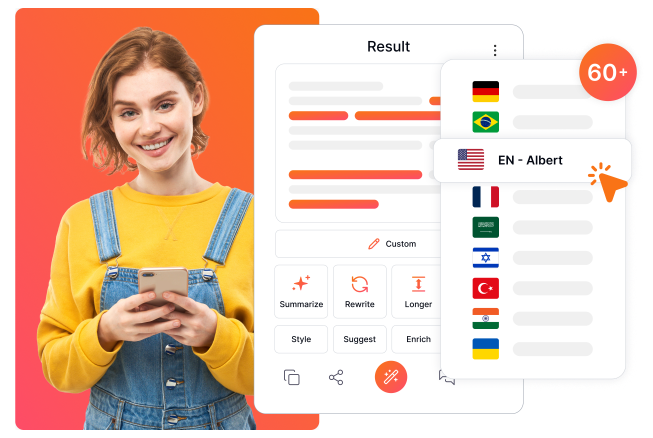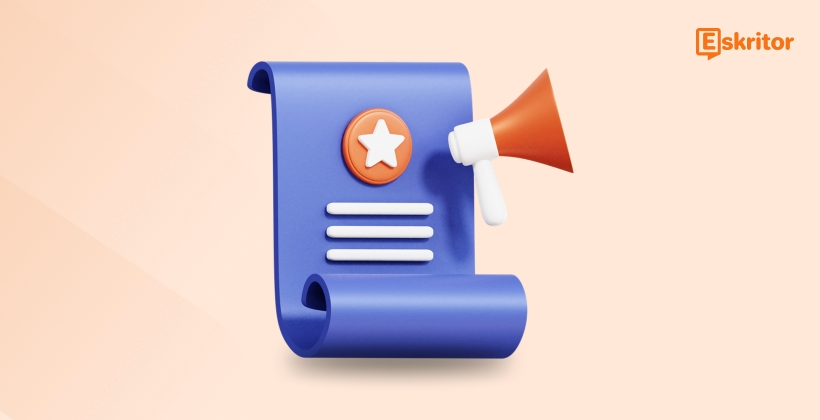AI Editing Features That Improve Your Writing Workflow
AI Editing Features That Improve Your Writing Workflow
Blog Article
The Future of AI Writing Technology Explained
Artificial intelligence (AI) writing technology has evolved rapidly over the past decade, reshaping just how we build and talk with published content. From syntax correction tools to AI-generated novels, the options seem limitless. But where just is that engineering going? Let's investigate the inventions, problems, and possible potential of ai grammar checker.

How AI Writing Engineering Performs Nowadays
At its key, AI publishing technology utilizes Organic Language Processing (NLP) and machine learning. These systems help types to comprehend, make, and improve human language. Tools available nowadays excel at tasks like:
1. Material Generation
AI has reached a place where it could make total blog posts, social media captions, and even information articles. Some versions are capable of mimicking individual writing styles therefore effectively that unique between AI- and human-written material is becoming increasingly difficult.
2. Syntax and Style Suggestion
AI-powered writing personnel don't just check always for grammar and punctuation mistakes; additionally they offer recommendations to boost tone, clarity, and sentence structure, making complicated publishing accessible to an extensive audience.
3. Message Analysis
AI can evaluate the mental tone of a bit, permitting companies to examine how their communications may resonate with readers. That is specially useful in advertising and client interaction.
The Current Traits in AI Publishing Technology
A few traits are surrounding another period of AI-powered writing resources:
• Personalization
AI writing engineering is increasingly effective at tailoring content to specific preferences. Designs can adjust to a user's writing fashion, ensuring the productivity feels authentic.
• Multilingual Features
Many AI methods are expanding their international reach by offering enhanced translation functions and help for numerous languages.
• Improved Research Features
AI tools today possess the ability to analyze huge levels of information and present fact-checked, well-researched writing in seconds, simplifying the procedure for specialists in industries like law, finance, and journalism.
What the Future Supports for AI Writing Technology
1. Increased Imagination
While recent AI is adept at generating material, its creativity remains restricted to patterns within its instruction data. Potential AI isn't only expected to help but to create unique, useful works that concern individual imagination.
2. Seamless Effort
Imagine an AI that performs along with you in real-time, finishing your sentences, completing stay edits, and also brainstorming ideas. AI publishing instruments may shortly become co-authors, allowing imagination to flow uninterrupted.
3. Honest and Available Design
With growing concern about plagiarism, misinformation, and tendency, developers will work toward more clear AI instruction processes and ethical implementation. Potential resources will more than likely present more detailed citations and actions to ensure accountability.
Challenges and Considerations
The development of AI publishing technology is not without hurdles, including:
• Moral Problems

Who possesses material developed by AI? How do we guarantee AI-generated content is not distributing misinformation? These debates remain unresolved.
• Human-AI Stability
Will AI complement individual imagination or entirely replace certain functions? Many authors and artists concern yourself with their relevance in an AI-driven world.
• Accessibility Split
Not absolutely all companies or regions have similar access to cutting-edge AI tools, raising issues in regards to the impact of this technology on worldwide inequality.
Adjusting the Way We Write
AI publishing engineering continues to be in its infancy compared to its potential. Whether you're a student developing essays, a material marketer targeting particular audiences, or perhaps a novelist seeking inspiration, AI methods may continue steadily to revolutionize the writing process. Another decade claims breakthroughs that mixture human ingenuity with device intelligence, creating a future wherever writing is better, available, and impactful than actually before.
Report this page